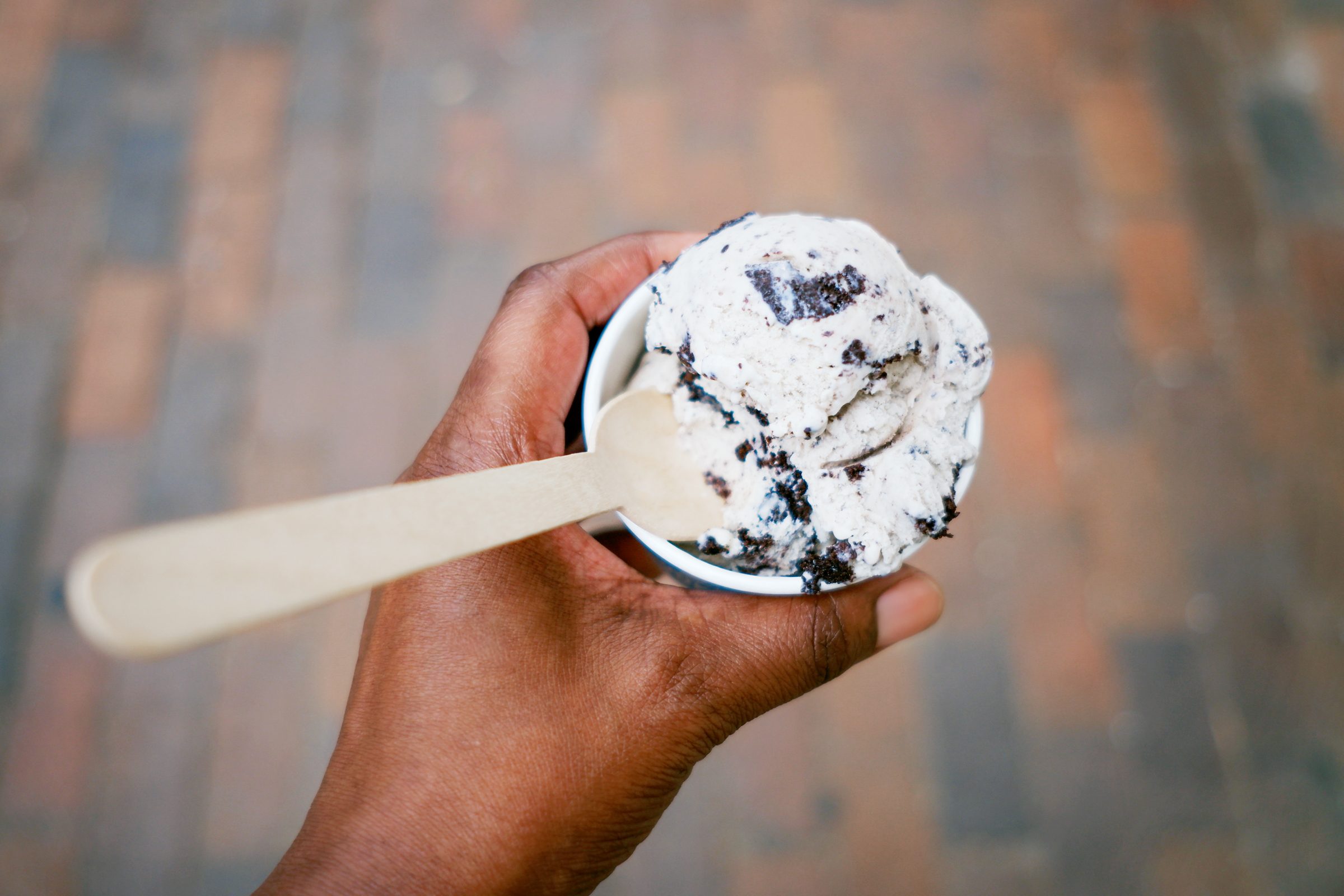Eating only ice for a week can lead to dental problems and is not a nutritious or sustainable diet. Craving ice may indicate nutritional deficiencies or other health conditions.
It is important to have a balanced and varied diet to maintain overall health and well-being.
Effects Of Eating Only Ice
Eating only ice for a week can have negative effects on your dental health, causing tooth decay and potentially damaging braces or fillings. It can also indicate underlying health conditions or nutritional deficiencies. While refreshing on a hot day, it is important to consume a balanced diet for overall well-being.
:
Eating only ice for a week can have detrimental effects on your body. Here are some ways it can impact your health:
- Lack of essential nutrients: Ice does not contain any essential nutrients that your body needs for proper functioning.
- Nutritional deficiencies: By solely consuming ice, you miss out on important vitamins, minerals, and macronutrients necessary for optimal health.
- Impact on overall health: Eating only ice deprives your body of the necessary fuel it needs, leading to potential health problems.
- Negative consequences on energy levels: Ice does not provide the energy your body requires for daily activities, resulting in decreased energy levels.
- Weakness and fatigue: Without proper nutrition, your body may become weak and fatigued, making it difficult to carry out everyday tasks.
- Difficulty in performing daily activities: Without sufficient nutrients, performing even simple activities can become challenging.
- Dental problems: Consistently chewing on ice cubes can lead to dental issues, such as tooth decay and cavities.
- Tooth decay and cavities: The constant contact of ice with your teeth can contribute to the development of tooth decay and cavities.
- Damage to enamel: Chewing ice can damage the enamel, the protective layer of your teeth, increasing the risk of tooth damage.
- Potential weight gain: Surprisingly, eating only ice may lead to weight gain due to excessive consumption caused by the lack of satiety it provides.
- Excessive consumption due to lack of satiety: Ice does not provide a feeling of fullness, which can result in overeating and potential weight gain.
- Impact on metabolism: Eating only ice can negatively impact your metabolism, making it difficult for your body to properly regulate energy expenditure.
Remember, a well-balanced diet is crucial for maintaining optimal health. Consuming only ice for a week can have severe consequences on your overall well-being.

Credit: www.thehealthy.com
Risks And Complications
Eating only ice for a week can have risks and complications. Regularly chewing on ice cubes can damage tooth enamel and lead to tooth decay. Craving ice may indicate underlying health conditions or nutritional deficiencies.
Craving and consuming only ice cubes for a week may seem harmless, but it can actually pose several risks and complications to your health. Let’s take a closer look:
Pagophagia And Its Complications:
- Chewing ice excessively, known as pagophagia, can lead to various dental problems and complications.
- Damaging tooth enamel: Regularly crunching on ice cubes can wear down your tooth enamel, making your teeth more susceptible to cavities.
- Damage to braces or fillings: Chewing on hard ice cubes can cause damage to orthodontic braces or dental fillings.
- Risk of cracked teeth: Ice cubes are hard and can potentially crack your teeth, leading to dental injuries that may require dental intervention.
Need For Further Medical Evaluation:
- Craving and consuming only ice cubes may indicate an underlying health condition that requires further medical evaluation.
- Pagophagia is often associated with iron deficiency anemia and may be an indicator for the need to investigate and address any potential nutritional deficiencies or other health issues.
Potential Underlying Health Conditions:
- Craving ice cubes, known as pica, can be a symptom of various medical conditions such as iron deficiency anemia or certain mental health disorders.
- If you find yourself constantly craving and consuming ice cubes without any understandable reason, it is crucial to consult with a healthcare professional to determine if there is an underlying health condition that needs attention.
Injury Risks:
- Consuming only ice cubes for a week may result in decreased energy levels and overall weakness. This can increase the risk of accidents and injuries.
- It is important to maintain a balanced and nutritious diet to ensure proper energy levels and support overall health and well-being.
Damage To Teeth And Braces:
- The act of chewing on ice cubes can lead to significant damage to your teeth and orthodontic braces.
- The pressure exerted while chewing ice can cause tooth fractures, chips, or cracks.
- In the case of braces, the force of chewing on ice cubes can damage the brackets or wires, prolonging the orthodontic treatment process.
Possibility Of Cracked Teeth:
- Ice cubes are solid and can exert a significant amount of pressure on your teeth while chewing.
- This pressure increases the risk of cracking one or more of your teeth, leading to pain, discomfort, and potential dental complications.
Psychological Effects:
- Craving ice cubes or having a compulsive desire to chew ice, known as pagophagia, might have psychological implications.
- The relationship between food cravings and emotions is complex, and seeking professional help from a mental health expert may be necessary to address any underlying emotional issues.
Relationship Between Food Cravings And Emotions:
- Food cravings, such as craving ice cubes, can sometimes be linked to emotional states and stress.
- Understanding and addressing the underlying emotional factors that contribute to certain food cravings is important for maintaining a healthy relationship with food and overall mental well-being.
While eating ice cubes for a week may seem like a harmless act, it can lead to various risks and complications. From dental problems to potential underlying health conditions, it is essential to maintain a balanced and nutritious diet to support overall health and well-being.
If you find yourself experiencing intense cravings for ice cubes or have concerns about your eating habits, it is always recommended to consult with a healthcare professional for proper evaluation and guidance.
Healthy Eating Habits And Alternatives
Eating only ice for a week can lead to dental problems like tooth decay and may be a sign of nutritional deficiencies. It is important to maintain a balanced and healthy eating habit for overall well-being.
Maintaining a balanced diet is essential for overall health and well-being. While eating ice may seem like a refreshing treat, it is not a suitable substitute for a proper meal. Here are some key points to consider when it comes to healthy eating habits and alternative options:
- Importance of a balanced diet:
- A balanced diet provides the body with the necessary nutrients to function optimally.
- It promotes good health, boosts energy levels, and supports the immune system.
- Incorporating a variety of nutrients:
- Consuming a variety of foods ensures that you obtain a range of nutrients, including carbohydrates, proteins, fats, vitamins, and minerals.
- Each nutrient plays a unique role in maintaining the body’s various functions.
- Meeting daily recommended intake:
- Following a balanced diet helps you meet the recommended daily intake of nutrients, which varies based on age, gender, activity level, and overall health.
- Adequate consumption of essential nutrients is crucial for maintaining optimal health.
- Seeking professional advice:
- It is advisable to consult a healthcare professional or a registered nutritionist before making any significant changes to your diet.
- They can provide individualized guidance based on your specific needs and health condition.
- Consulting a healthcare professional or nutritionist:
- A healthcare professional or nutritionist can assess your dietary requirements and help you develop a personalized meal plan.
- They can address any nutrient deficiencies and ensure you are consuming a well-rounded diet.
- Healthy snack alternatives:
- When cravings strike, it’s important to choose nutritious and filling alternatives to satisfy your hunger while maintaining your nutrition goals.
- Opt for snacks like fruits, vegetables, yogurt, nuts, seeds, or whole grain products.
- Nutritious and filling options:
- Incorporate foods that are rich in nutrients and provide satiety without compromising on taste.
- Choose options like lean proteins, whole grains, legumes, and leafy greens to keep you feeling satisfied and energized.
Remember, while indulging in an occasional icy treat can be enjoyable, it is crucial to prioritize a well-balanced diet for optimal health.
Frequently Asked Questions On What Happens If You Only Eat Ice For A Week
What Happens If I Only Eat Ice Cubes For A Week?
If you only eat ice cubes for a week, it can lead to dental problems and nutritional deficiencies.
How Much Weight Can You Lose On The Ice Diet?
The amount of weight you can lose on the ice diet varies and is not recommended for long-term weight loss.
What Can Happen If You Eat Ice Everyday?
Eating ice everyday can damage tooth enamel, cause dental problems like tooth decay, and may indicate nutritional deficiencies.
How Many Calories Does Eating Ice Burn?
Eating ice actually burns calories because it requires energy to melt the cube.
Faq 1: Is It Safe To Only Eat Ice For A Week?
It is not safe to only eat ice for a week as it does not provide the necessary nutrients and can lead to nutrient deficiencies.
Conclusion
While the idea of only eating ice for a week may seem tempting as a quick weight loss solution, it can actually have negative effects on your health. Regularly chewing on ice can lead to dental problems, such as tooth decay and damage to enamel, braces, or fillings.
Moreover, craving ice may be a sign of underlying health conditions or nutritional deficiencies. Additionally, eating only ice for a week can leave you lacking energy, weak, and potentially result in weight gain if extreme amounts are consumed. It is important to remember that a balanced and nutritious diet is essential for overall health and well-being.
If you have concerns about your eating habits or experience cravings for ice, it is advisable to consult a healthcare professional for proper guidance and support.


